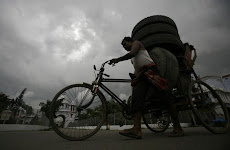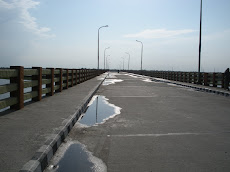118 rebels flee B'desh camps Surrender in Tripura
 Agartala, 15 February : More than 100 tribal separatists have surrendered before the authorities in Tripura after fleeing from their bases in adjoining Bangladesh, officials said here Sunday.
Agartala, 15 February : More than 100 tribal separatists have surrendered before the authorities in Tripura after fleeing from their bases in adjoining Bangladesh, officials said here Sunday.'The Bangladesh-trained militants, numbering 118 and led by their leader Pabanjoy Reang, surrendered before senior police and paramilitary officers late Saturday night,' police spokesman Nepal Das said.
The militants belong to the Borok National Council of Tripura (BNCT), a sister organisation of the banned National Liberation Front of Tripura (NLFT).
They also deposited a large cache of arms and ammunition, including AK series rifles, three mortars and foreign made revolvers.
Militants belonging to various rebel groups in the northeast have set up about 100 camps and hideouts in different parts of Bangladesh, specially Sylhet district and Chittagong Hill Tracts (CHT) in the mainly hilly region of Bangladesh bordering India's Tripura, Mizoram and Meghalaya states.
'We have managed to escape from our camps in CHT after Bangladesh launched anti-insurgency operations in different parts of that country,' Reang told reporters. With this, about 160 tribal guerrillas of NLFT and All Tripura Tiger Force (ATTF), including some dreaded ultras carrying rewards of Rs.250,000 each and having Interpol arrest warrants, have fled from their Bangladeshi camps and surrendered to Indian security forces.
>
India restarts Tipaimukh barrage work
UNB, Sylhet, 15 February : India has started construction of Tipaimukh barrage barely one kilometer away from Jakiganj border threatening to dry up the flow of the Surma and Kushiara rivers during the winter.The barrage on the Barak River at Churachandpur district in Assam will render barren vast arable lands in north-east of Bangladesh, change ecology and climate in the region.
UNB, Sylhet, 15 February : India has started construction of Tipaimukh barrage barely one kilometer away from Jakiganj border threatening to dry up the flow of the Surma and Kushiara rivers during the winter.The barrage on the Barak River at Churachandpur district in Assam will render barren vast arable lands in north-east of Bangladesh, change ecology and climate in the region.
 Officials of the Bangladesh Water Development Board (WDB) told UNB that work on the barrage was started in March 2007 but postponed in the face of protest within and outside India. A long march from Sylhet to Jakiganj and environmentalists in India had strongly protested the construction of the barrage.
Officials of the Bangladesh Water Development Board (WDB) told UNB that work on the barrage was started in March 2007 but postponed in the face of protest within and outside India. A long march from Sylhet to Jakiganj and environmentalists in India had strongly protested the construction of the barrage.According to the WDB officials, Indian state-owned NIPCO Company recently started the groundwork on the barrage. An appraisal committee of river valley and hydro-electric experts of India issued the clearance certificate for the barrage few months ago.
Sajjadul Hasan, deputy commissioner of Sylhet, said he would inform the appropriate quarter about the latest development on Tipaimukh barrage.
When the barrage will be completed by 2012, the 350-km long Surma and 110-km long Kushiara rivers will dry up in the winter, seriously affecting agriculture and bringing about ecological changes in the region, experts said.





















































































































































































No comments:
Post a Comment